Which kingdoms can eukaryotic organisms belong to?

A eukaryotic organism may belong to:
- Protoctist kingdom
- Fungi Kingdom
- Plant Kingdom
- Animal Kingdom
What is the main difference between the organisms included in the Monera kingdom and those of the other 4 kingdoms?

The organisms of the Monera Kingdom are PROKARYOTES
What are protozoa like: single celled, multicellular or can they be of both classes?

Protozoa are single-celled protoctists.
All algae are multicellular and that is why we can see them with the naked eye. True or False?

FALSE, there are many unicellular algae, for example those that are part of PLANKTON, along with cyanobacteria, protozoa and other organisms.
Fungi are all multicellular. True or False?

False, there are single-celled fungi such as yeast.
In which kingdom would you include this greenish organism and what is it called?

It is a MOLD and is included in the FUNGI Kingdom.
What is the name of the long appendage that many bacteria have to move around?

It is a FLAGELLUM, they can have one or several.
Some eukaryotic cells may also have flagella but they have a different, much more complicated structure.
What are the small appendages (like microscopic hairs) that this protozoan has called?

They are CILLIAS and serve to create currents when moving, being able to feed, as well as to adhere to surfaces.
What organelle do algae cells have that protozoa don't?

They have chloroplasts to carry out photosynthesis.
Fungi, like plants, photosynthesize so they can grow in forests. True or False?

False, fungi feed on organic matter from other living things.
What kingdoms include organisms that must all, by definition, be heterotrophs?

The FUNGI kingdom and the ANIMAL kingdom
What are the names of the bacteria in images a), b) and c)?

(a) COCCUS
(b) BACILLI
c) SPIRALS OR SPIROCHETES
What are the names of the 2 arms that come out of this protozoan to ingest bacteria or to move?

They are PSEUDOPODS.
What benefits does ALGAE bring us?
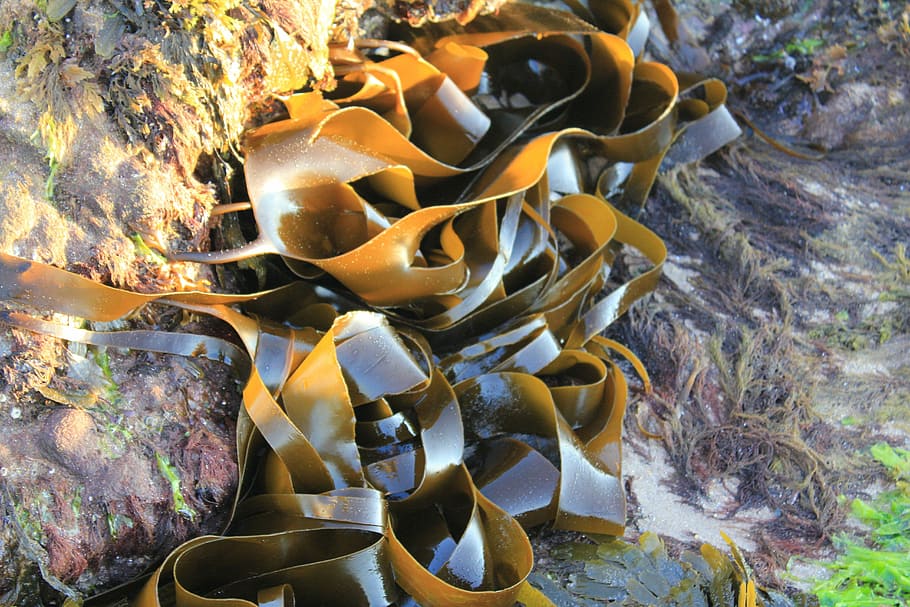
There are many benefits that algae can bring us, for example:
- Being photosynthetic organisms, they fill our seas and the Earth with oxygen.
- They are nutritious and serve as food in many cultures.
- They are a source of very useful compounds such as thickeners, agar, etc.
The structure we see of multicellular fungi is only the fruiting body - the reproductive system that will spread the spores. True or False?

True. Like an iceberg, the rest of the fungus is underground, hidden from view.
Which kingdom can include unicellular or multicellular organisms and also includes both autotrophic and heterotrophic organisms?
The Protoctist Kingdom. It is a catch-all in which organisms that do not belong to the other kingdoms are included.
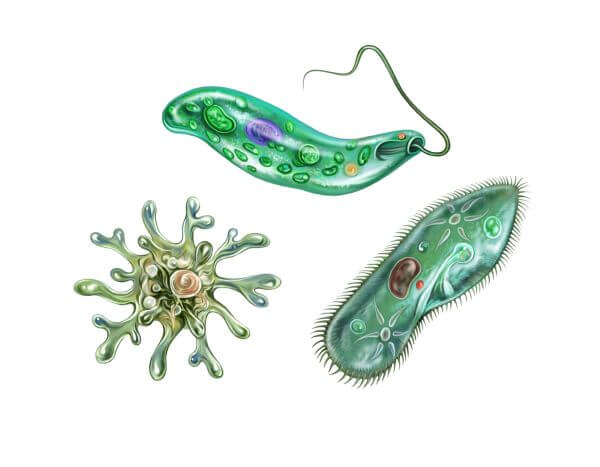
What is the group of autotrophic bacteria that can live in colonies and filled the early Earth with oxygen?
Cyanobacteria
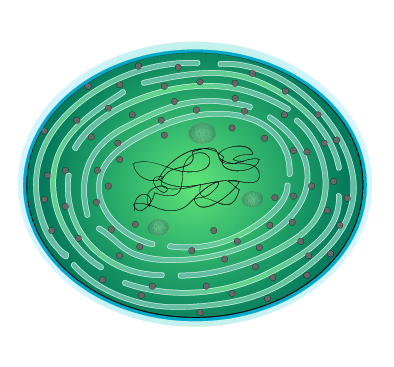
Give an example of a protozoan parasite that causes disease in humans

There are many, but the most important is MALARIA.

Other examples include sleeping sickness, amoebic dysentery, etc.
What kind of algae is shown in this delicious dish? What other 2 types of multicellular algae are there?

GREEN ALGAE is on the plate.
The other types of algae are RED ALGAE and BROWN ALGAE.
COMPLETE THE SENTENCE: Some fungi have ____ which are elongated cylindrical filaments. The set of many of these filaments is called _______
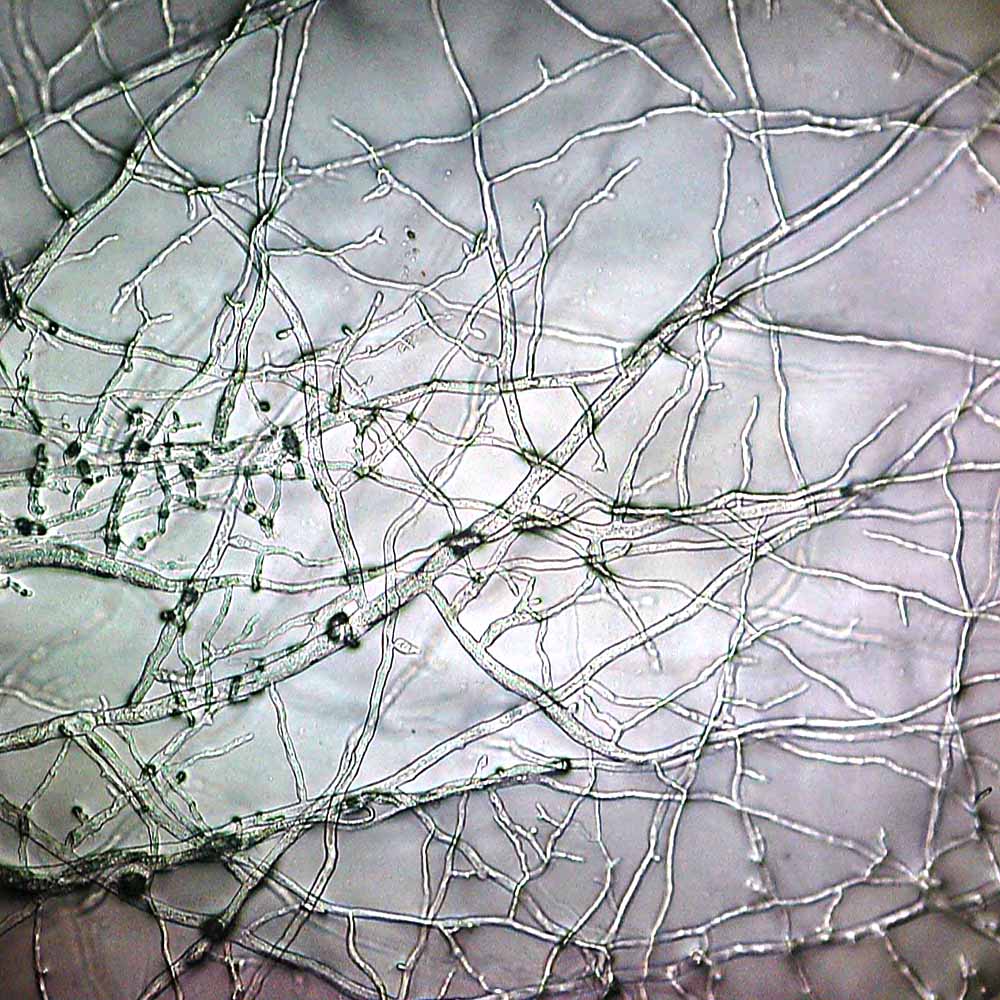
Some fungi have HYFA which are elongated cylindrical filaments. The set of many of these filaments is called MYCELIUM.
In which kingdom would you include a single-celled, eukaryotic, autotrophic organism?

In the PROTOCTIST Kingdom because it would be a unicellular alga like Euglena.
How do bacteria usually reproduce?

By asexual reproduction, they are divided by bipartition.
Not all protozoa are parasites, there are many that are beneficial. Explain some benefits that protozoa can bring us.

PLANKTON are a type of protozoa, which serve as food for many aquatic organisms on which humans feed.
They are important in the WASTEWATER TREATMENT, as they feed on the decomposer bacteria present in these waters.
Algae can reproduce in different ways, both asexually and sexually. Explains at least 2 types of ASEXUAL REPRODUCTION in algae.
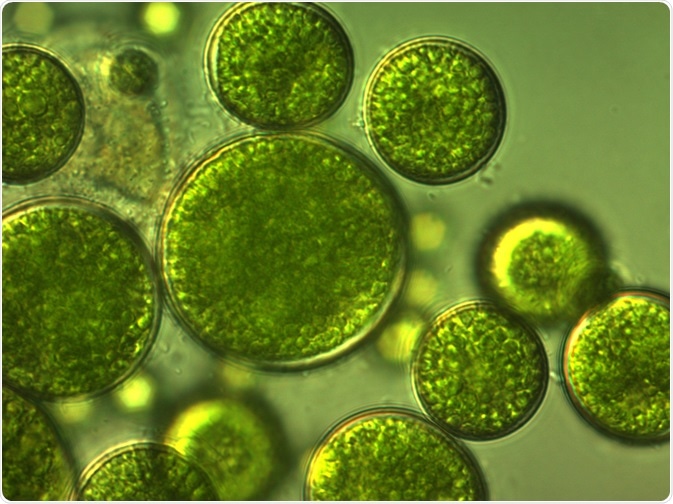
Algae can reproduce asexually by:
- BIPARTITION (if the algae are unicellular they reproduce like bacteria)
- FRAGMENTATION (a new individual is formed from one fragment or piece of another).
- THROUGH SPORES
Fungi can reproduce in many different ways, but the yeasts in this image usually do so by a process called ...

The yeast found in bread, beer and wine reproduces by BUDDING